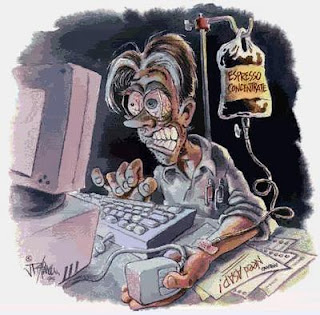In an extensive study conducted in Taiwan over 49,609 randomly selected students
from 156 Universities were asked in an online survey about their internet use habits.
This study was conducted by Ying-Fang Chen, M.A. and Samuel S. Peng, Ph.D with
the scope of understanding the relationship between internet use and academic
performance.
The respondents to this survey were
divided in two categories heavy users and non heavy users. Students that spend less
than 33.97 hours a week online were classified as non heavy users and those
that spent more than 33.97 hours a week online were classified as heavy users. Survey
found that students on average spend 17 hours online a week and out of that
time: 4.15 hours are spent making new friends, 3.59 hours are spent on academic
work, 3.21 hours on non academic related internet searches, and 2.57 hours
playing games.
The survey also found that psychosocial differences between heavy and non
heavy users were statistically significant. According to this study heavy
internet users are more likely to be depressed, physically ill, and lonely. One
explanation for these results could be the fact that the more time you spend
online the less time you have to spend in the real world.
When it comes to academic performance the difference between non heavy internet
users and heavy internet users is also statistically significant. Data shows
that heavy internet users have lower grades than non heavy internet users. In addition
heavy internet users reported difficulties, learning, studying, completing assignments
and getting enough sleep. As before one possible explanation is the fact that the
more time you spend online the less time you have to spend on academic life.
In conclusion heavy internet use will
not only impact your academic life but also your physiological and
psychological well being.
-Oleg
Frunza
Works Cited
Ying-Fang,
Chen, and Samuel S. Peng. "University Students' Internet Use And Its
Relationships With Academic Performance, Interpersonal Relationships,
Psychosocial Adjustment, And Self-Evaluation." Cyberpsychology &
Behavior 11.4 (2008): 467-469. Academic Search Complete. Web. 27
Mar. 2013.




